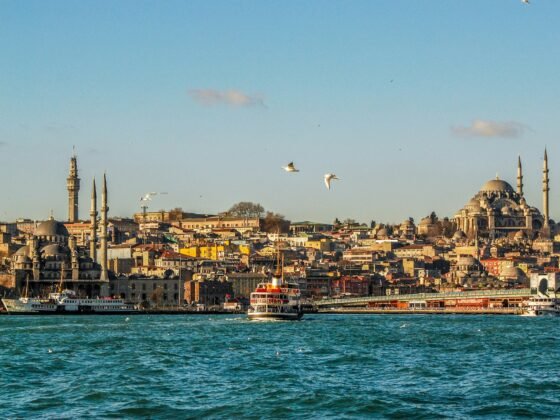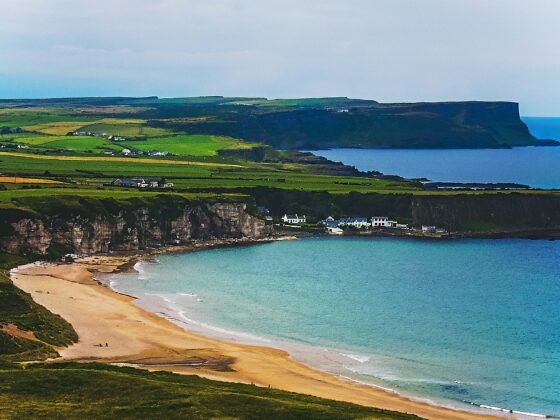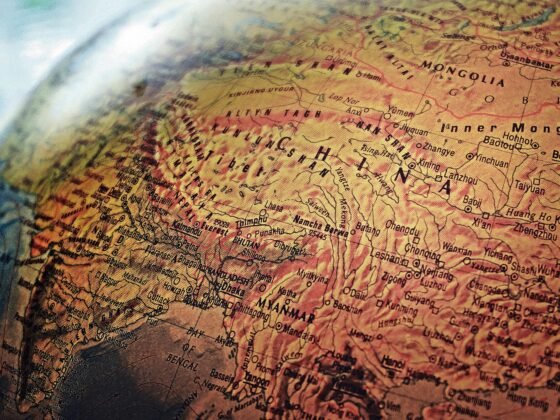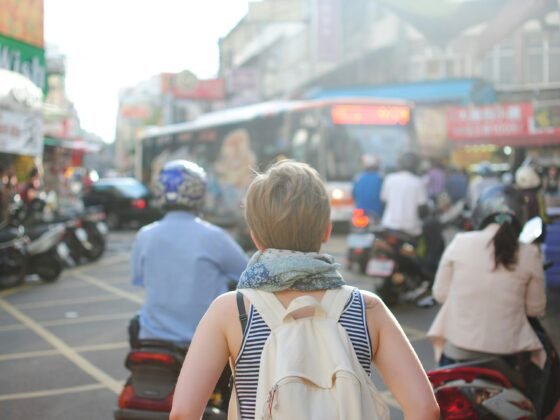Cape Town is dominated by mighty Table Mountain, copious vineyards and gorgeous beaches. And this lively city gets to showcase its rich history and vibrant culture with the prestigious honour of hosting the World Design Capital 2014.
Climb Table Mountain National Park
Cape Town goes by many different names: ‘Mother City’ and ‘The Tavern of the Seas’ are just two. Whatever you may call it, there’s no denying that the most iconic sight is the mighty Table Mountain which soars over the city. Recently named a New7Wonders of Nature, climbing Table Mountain is an absolute must. Adventure enthusiasts can opt to climb to the peak on a challenging hike that will take the best part of a day. Or simply whizz to the top on the cableway which was established in 1929 and which takes just five minutes! It goes without saying that views from the 3,558 feet (1,085 meters) tall behemoth are to die for. Look out over the Atlantic Ocean, Robben Island, the Cape of Good Hope and the city itself. More than 1,500 plant species exist up here amongst the fynbos (fine bush).
Explore the Kirstenbosch National Botanical Garden
Cape Town is packed with natural sights and the pinnacle has to be the jaw-droppingly beautiful National Botanical Gardens at Kirstenbosch. In fact this garden is world-famous: its home to some 22,000 indigenous plants and its position is enviable, set against the impressive backdrop of Devil’s Peak and Table Mountain. Bountiful Kirstenbosch forms part of the Cape Floral Kingdom, a recognised World Heritage Site from UNESCO. Covering some 1305 acres, the Botanical Gardens were established in 1913 and offers a free daily walking tour.
Experience Robben Island up close
Robben Island has become one of South Africa’s most visited heritage attractions, after housing some of the country’s most famous political prisoners. The most famous of course is Nelson Mandela who was held here for 18 years of his 27 year prison sentence. Located 9km (5.5mi) off the coast of Cape Town, the island is named after the Dutch word for ‘place of seals’, aka ‘robben’. Used as a prison, military base and mental institution, today Robben Island is a designated World Heritage Site. Don’t miss the Robben Island Museum tour. To learn more, watch the ‘Long Walk To Freedom’ movie where Nelson Mandela is played by Idris Elba.
Wonder at the Heart of Cape Town Museum
What does 3 December 1967 mean to you? The date actually marks the greatest achievement within medical history – when the first ever heart transplant was completed, leading the way in pioneering medicine. The museum is fascinating: here you can learn about the innovative procedure and see the theatres and uncover the timelime of events for yourself.
Chill out on Cape Town’s award winning beaches
Last year Cape Town was named as Africa’s Leading beach Destination and with a wealth of glorious golden beaches, it’s easy to see why. Considered one of the best Clifton Beach, which is actually made up of four separate beaches, is über glam; in fact it’s dubbed Cape Town’s St Tropez! Clifton Beach is best known for its opulent Millionaire’s Row district – thanks to the large mansions. Camps Bay is also a trendy destination and offers superb views over the azure Atlantic Sea. Finally Boulders Beach is a real back-to-nature experience, as the sheltered inlet is home to a colony of African penguins, whose natural habitat is protected.
Soak up the architecture in the World Design Capital 2014
Being named a World Design Capital is a prestigious honour indeed and 2014 sees Cape Town showcase its heritage, diversity and creative spirit. Certain to be one of the hottest travel destinations for 2014, the city is bursting with fine architectural and design examples. Don’t miss the seriously impressive Italian Renaissance style City Hall and Grand Parade which was built in 1905. Make a stop at the Castle of Good Hope, which is the oldest building in South Africa – built in 1679 by the Dutch East India Company, it originally served as a fort. And undoubtedly one of the reasons that city was awarded the Design capital accolade was the Montebello Craft and Design Centre, which houses the ultimate in arts and crafts studios.
Hang out at family-friendly V&A Waterfront
The most popular spot in Cape Town is the Victoria and Albert Waterfront, or just V&A for short. Packed with restaurants, shops and tourist attractions, this is the number one go-to place in the city. Eyeball sharks at the Two Oceans Aquarium, check out the free entertainment at the Amphitheatre and learn a little at the interesting Maritime Centre Museum. Incidentally, if you want to get up close with whales and dolphins in the wild, head down to Plettenberg Bay which offers the best opportunities in the country.
Discover the superb wines of the Western Cape
Every self-respecting supermarket across the globe sells South African wine and now is the opportunity to taste the superb Western Cape wines for yourself. Dotted all along the coast are wine farms, many of which are open for tours and, more importantly, tasting. The South African wine industry was founded in 1659 and today the vineyards specialise in the Chenin Blanc, Cabernet Sauvignon, Colombard and Shiraz grapes, with Cheni Blanc accounting for a fifth of all wines produced here. Incidentally the country is best for its production of the red wine grape Pinotage, its signature wine which was bred here in 1925.
Hike Signal Hill and experience the Noon Gun
The landmark Signal Hill, together with Lion’s Head is a great spot for hiking, with exquisite views out over the gorgeous Table Bay harbour and the Atlantic Ocean beyond. Join the locals in a picnic on Signal Hill and hang around for the startling Noon Gun, where the famous gun is still fired every day at 12.
Join the colourful Cape Minstrel Carnival
Each year the streets of Cape Town come alive with the raucously colourful Cape Minstrel Carnival which is also known locally as ‘Tweede Nuwe Jaar’, aka second New Year. One of the most interesting things to do in Cape Town, its roots are based within the old slave traditions around the time of the Cape Colony and is held each year on 2 January – the only day off that slaves used be given. The carnival is likened to Mardi Gras, in that it’s lively, colourful and celebrates freedom. Definitely one not to miss!












